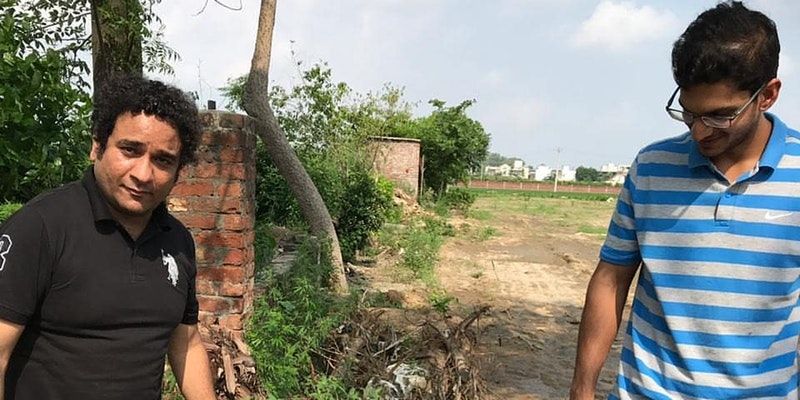This IRS officer from Punjab is on a mission to bring back lost green cover through his micro-forest initiative
In a span of two years, Rohit Mehra, an IRS officer, has created more than 27 micro jungles, which are expected to grow 10 times faster, 30 times denser, and be 10 times more biodiverse.
Mumbai’s Aarey forest was recently in the news as many trees were being cut down for the upcoming Mumbai metro shed. Despite the many protests, the state-run metro authority somehow succeeded in cutting down more than a 1,000 trees in the forest.
Reducing green cover means increasing temperatures and lesser rainfall. While it is worrying to see the decreasing green cover in India and across the globe, this man from Punjab has come up with a unique plan to save the environment and increase the green cover.
Rohit Mehra, an Indian Revenue Service officer (IRS), is leading the reforestation drive in the city of Ludhiana through his ‘micro jungles’.

Rohit Mehra (Image: Picpanzee)
Rohit is following a Japanese plantation process called Miyawaki. He has also inculcated Vriksha Ayurveda, an ancient Indian plantation method, to tackle the problem. A good number of trees are grown together in a small patch of land using the process.
Some of the trees grown in the mini jungle include Neem, Amla, Bargad, Peepal, and Ashok, which according to Rohit, are known as Panchvati. These core trees are then surrounded by other varieties like Teak, Chameli, and Harishnakri. The trees are planted at a distance of 2.5 feet between each other, and are grown using leaf manure.
Rohit said: “We are using varieties that grow fast and are dense by using the techniques described in Vriksha Ayurveda. Whatever agriculture waste we get in the vicinity of the land available to us for growing the small forest is used to fertilise the soil where saplings are planted”, reports Tribune India.
In a span of two years, Rohit has created more than 27 micro jungles, which are expected to grow 10 times faster, 30 times denser, and be 10 times more biodiverse.

Image: The Logical Indian
Till date, he has created more than 20 micro jungles across Amritsar, Ludhiana, Surat, Gurugram, and Vadodara to name a few. These forests are created in various public institutes and spaces. Moreover, Rohit is also leading the ‘Green Get Together’ through which he is encouraging more people to plant trees, and is distributing seed balls at toll plazas in the city.
Rohit feels people’s participation is also very important in saving the environment, and is encouraging the public to actively take part in the making of micro jungles.
Speaking to The Logical Indian, Rohit said,
“I loved summer vacations as a child because it was a relieving break. Now, my son has vacations because of the increasing pollution in the city. We should be able to enjoy our holidays; not spend them protecting ourselves from the degrading air outside”.
(Edited by Megha Reddy)
Do you have an interesting story to share? Please write to us at [email protected]. To stay updated with more positive news, please connect with us on Facebook and Twitter.













